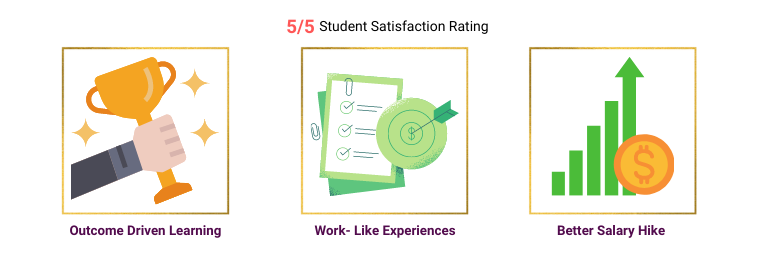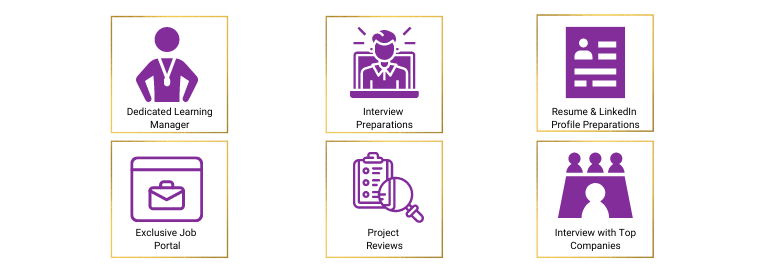Kubernetes Online Training
This course will help you to gain understanding how to deploy, use, and maintain your applications on Kubernetes. If you are into DevOps, this is a technology you need to master. Kubernetes has gained a lot of popularity lately and it is a well sought skill by companies.
When Google started running containers a decade ago, nobody could reach this kind of infrastructure agility and efficiency. Using this knowledge, Google released Kubernetes as an free and open source project. Nowadays Kubernetes is used by small companies and big enterprises who want to gain the efficiency and velocity Google has.
You can containerize applications using Docker. You can then run those containers on your servers, but there’s no way you can manage those efficiently without extra management software. Kubernetes is an orchestrator for your containers that will create, schedule and manage your containers on a cluster of servers. Kubernetes can run on-premise or in the cloud, on a single machine or on thousands of machines.
In collaboration with
Online Class
Projects
Hands-On
n/a

15 Hrs Instructor-led Training
Mock Interview Session
Project Work & Exercises
Flexible Schedule
24 x 7 Lifetime Support & Access
Certification and Job Assistance



Course Benefits




Kubernetes Online Training Course Overview
- Install and configure Kubernetes (on your laptop/desktop or production grade cluster on AWS)
- Use Docker Client (with kubernetes), kubeadm, kops, or minikube to setup your cluster
- Be able to run stateless and stateful applications on Kubernetes
- Use Healthchecks, Secrets, ConfigMaps, placement strategies using Node/Pod affinity / anti-affinity
- Use StatefulSets to deploy a Cassandra cluster on KubernetesAdd users, set quotas/limits, do node maintenance, setup monitoring
- Use Volumes to provide persistence to your container
- Be able to scale your apps using metrics
- Package applications with Helm and write your own Helm charts for your applications
- Automatically build and deploy your own Helm Charts using Jenkins
- Install and use kubeless to run functions (Serverless) on Kubernetes
- Install and use Istio to deploy a service mesh on Kubernetes
- Continuously Develop using Skaffold
- There is no prior knowledge needed, but a dev/ops/cloud/linux/networks background will definitely help
- The course optionally uses Kubernetes on AWS. If you want to learn more about AWS itself, you will need to read some AWS documentation or take another AWS course. The course only explains how to use Kubernetes on AWS, it doesn’t explain how to use AWS itself. Still, all steps that you need to follow are explained in this course.
Possessing the following skills can give you an added advantage when you enroll for the Kubernetes course:
- Docker Essentials
- Basic Knowledge about Linux Administration
- Basic knowledge about Networking
Mentors Pool follows a rigorous certification process. To become a certified Kubernetes Certification (CKA) , you must fulfill the following criteria:
- Online Instructor-led Course:
- Successful completion of all projects, which will be evaluated by trainers
- Scoring a minimum of 60 percent in the Kubernetes Certification (CKA) quiz conducted by Mentors Pool
Following are some benefits that a professional can gain by doing a course on Kubernetes:
- Based on the Neuvoo salary report, a Kubernetes Docker Engineer can earn an average of $150k per annum.
- You can land your dream job as a Kubernetes developer or infrastructure engineer by pursuing this course.
- Kubernetes is foundational for a Fortune 500 digital transformation, which is why professionals with knowledge in Kubernetes are in high demand.
- Skilled Kubernetes professionals can start a career as automation engineers or DevOps engineers.
Talk to Us
IN: +91-8197658094
The Kubernetes orchestration engine powers some of the biggest and most complex deployments in the world. According to a Cloud Native Computing Foundation (CNCF) report, Kubernetes is the go-to choice with 78% market share for container orchestration.
Jobs where Kubernetes experience is factored draw an average salary of $144,288 across the industry – ZipRecruiter.
Fees
Online Classroom
- 15 Hrs of Instructor-led Training
- 1:1 Doubt Resolution Sessions
- Attend as many batches for Lifetime
- Flexible Schedule
Batches
Dates
Days
Timings
Enrolment validity: Lifetime
Login
EMI Option Available with different credit cards
Cart
Corporate Training
- Customised Learning
- Enterprise grade learning management system (LMS)
- 24x7 Support
- Enterprise grade reporting
Course Content
Kubernetes Online Training Course Content
Learning objectives:
This module will introduce you to the various concepts DevOps Installation and EC2 Walkthrough
Topics:
- EC2 Walkthrough
- Installation of DevOps Tools in the Cloud
- Git
- Docker
- Selenium
- Jenkins
- Puppet
- Ansible
- Kubernetes
- ELK
Topics:
- DevOps Overview
- What is DevOps and Why do we need DevOps
- Understand the CALMS Model of DevOps
- Understand Continuous Integration, Continuous Delivery and Continuous
- Deployment
- Tool Chains and Ecosystem of Deployment Pipelines
- Pipeline we will be building for this course
Learning Objectives:
Differences between Virtualization and Containerization, Docker Essentials & What and Why Kubernetes is required .
Sub Topics:
- Docker Essentials
- Virtualization vs Containerization
- Evolution of Kubernetes
- Why Kubernetes?
- Differences between Docker Swarm & Kubernetes
- Kubernetes Use Cases
- Case Study
Hands-on workshop description:
Install Virtual box, Install Docker / Docker-Client, Create a Docker Image using YAML format
Learning Objectives:
Understand about the key components of Kubernetes Cluster- Master, Nodes and AddOns
Sub Topics:
- Understand Kubernetes Architecture
- Introduction to Kubernetes Master
- Components of Kubernetes Master
- Introduction to Node Components
- Case Study
Hands-on workshop description: No Hands-On:
Learning Objectives:
Knowledge of installing & Kubernetes Cluster on Virtualbox, AWS Cloud and Google Cloud Platforms
Sub Topics:
- Installing & Configuring Kubernetes locally via Minikube
- Creating Kubernetes Cluster in Google Cloud
- Creating Kubernetes Cluster in AWS Cloud
Hands-on workshop description:
- Creating 2 VM’s in Virtual Box
- Download kubectl and minikube and install them
- Start minikube & deploy sample deployment and expose to and external network
- List all the nodes of the clusters
- Stopping and deleting the cluster
- Working with Kubernetes Dashboard
- Creating Kubernetes Cluster in AWS and Google Cloud
Learning Objectives:
Understand about Pods and how to deploy an app using kubectl commands
Sub Topics:
- Introduction to Pods
- Pods Lifecycle
- Working with Pods to manage multiple containers
- Deploying Pods via Replication Controllers
- Case Study
Hands-on workshop description:
- Deploy containerized application image in minikube
- Viewing Pods and Nodes
Topics:
- What are volumes?
- Types of volumes
- Persistent volumes
- Introduction to secrets
- Taints and tolerations
Hands on – Creating volumes, Creating Persistent Volumes, Creating and working with secrets, Taints and Tolerations
Learning Objectives:
Learn what is a Service , how to scale up and down the application replicas, provide updates to the application and autoscaling containers.
Sub Topics :
- Overview of Services
- Labels and Selectors
- Scale out deployment using Replicas
- Horizontal Pod Autoscaling
- Load Balancing
- Rolling Updates
- Case Study
Hands-on workshop description:
- Creating a Service
- Using Service to expose App
- Working with labels
- Scale Up / Down the deployment to maximum and minimum replicas
- Check the rollout status and rollback an update
- Delete the services created
Topics :
- What is Ingress
- What is a Kubernetes Dashboard?
- Setting up Kubernetes Dashboard
- Security practices for Kubernetes
Hands on – Creating ingress with name hosting, Setting up and working with Kubernetes Dashboards
Topics :
- Introduction to Federation
- Kubernetes Monitoring
- Setting up Prometheus
- Setting up Grafana
Hands on – Controlling cluster from the outside, Setting up and working with Prometheus, setting up and working with Grafana
Course Projects
Creating a custom YAML File.
As an important of this real-life project, get hands-on Learning experience in how to create a custom YAML files using these: YAML, replicas, selectors, lables etc.
Creating and accessing a webpage using Kubernetes Services
The project involves successfully creating and accessing a webpage using Kubernetes services such as YAML, Replicas, Selectors, Lables, Pods, Services, Deployment etc. Get a Hands-On Learning experience in all the above.
Solving the issue of pods losing data on restrats
With the help of this real-life projects, get practical experience in successfully solving the issue of Pods losing data on restarts. The topics covered are : YAML, pods, Deployment, Volumes, Persistent Volume, Secrets.
Course Certification
Kubernetes, an open source container orchestration platform, is used to automate the management of containerized applications. Its numerous benefits have made it particularly popular with organizations that are utilizing DevOps approaches. Kubernetes has become the standard for deploying containers in production since it is scalable, flexible and works for projects of varying scale. This course will start from basics of Kubernetes and covers concepts such as Kubernetes Architecture, Kubernetes Components and how to deploy application. With Kubernetes engineers earning as much as $133,992 per year, now is the right time to invest in this workshop and upscale your career.
The use of container technology has seen a massive increase in the past few years as more and more organizations are realising the potential of containers. These enterprises deploy a huge number of containers and thus require technologies and frameworks that help in automation and management of these containers. Technologies such as Kubernetes that help in automating deployment, scaling, and management of containerized applications are thus in much demand.
Kubernetes is an open source; container management system created by Google to automate deployment and manage containerized applications. It acts as a portable cloud platform that orchestrates computing and networking. It has become an integral part of DevOps teams since it helps them manage the containers easily.
As per a recent survey conducted by Datadog, the usage of Kubernetes continues to grow in container environments globally. Hence, the demand for professionals who have knowledge of Kubernetes is high, since organizations need experts who can help manage these containers.
Many organizations are adopting container technology and Kubernetes to support their operational goals. Here are some of the benefits:
- Portability: Companies can make use of many cloud servers without making any changes in the infrastructure.
- Cost effective: Kubernetes can help reduce infrastructure costs making use of minimal resources to maximize the benefits of the cloud investment.
- Improved efficiency: With the help of Kubernetes, teams within an organization can manage many large applications more efficiently.
- Scalability: Kubernetes uses containerized applications as interconnected units so that developers can control every aspect of the application.
- Efficient resource management: It ensures that there are always resources for running applications and thus can decrease cost on the cloud infrastructure.
As containerization grows, the demand for a platform to successfully adopt these containers also rises. This is where Kubernetes, a platform built by Google, stepped in to help automate the process of deployment, scaling and managing the applications across the clusters.
By the end of this course, you would have gained knowledge on the basics of Kubernetes and its architecture. You will be well versed in the use of Kubernetes technologies and how to leverage it to ease application deployment and orchestration.
Getting certified in Kubernetes will demonstrate your skills and knowledge in using the tool. As Kubernetes is witnessing increased adoption, employers will need skilled professionals who can work on the tool. With the Kubernetes certification, you will stand out among your peers and prove that you are capable of using the tool as the employers want.
You will:
- Install and configure Cluster on bare metal machines
- Deploy any application and have it scaled manually or automatically.
- Learn how to work with Services, Pods and schedule applications on the containers
- Manage state with deployments
Certification Course Reviews
Certification Course FAQs
To become a Certified Kubernetes Administrator, you should enroll in one of the best Kubernetes courses and gain in-depth knowledge in this domain. Once you have acquired both theoretical and practical knowledge that is required in the field, you must clear the Certified Kubernetes Administrator (CKA) examination.
The main goal of the Certified Kubernetes Administrator or CKA certification exam is to ensure that the individuals appearing for the exam have the necessary knowledge, skills, and competency in the tool that will help them perform all the given business tasks and responsibilities in an organization. It is an online examination conducted through streaming video, audio, and sharing screen feeds that allow experts to monitor the candidates’ desktops.
The certification exam is available in multiple languages, including English, Japanese, Spanish, German, and Portuguese. Also, it has a validity of 2 years.
Some of the system requirements that are necessary to take this examination are as follows:
- Good Internet connection
- Chrome web browser
- Microphone, a headset, speakers, and a webcam
Several organizations around the world are shifting to the cloud, and a lot of them use containers in production. These containers are managed using Kubernetes. With the Kubernetes certification, you will become well-versed and skilled in handling Kubernetes tools and dealing with the job responsibilities of a certified Kubernetes Administrator (CKA).
As per the jobs posted on LinkedIn, there are over 41,000 job vacancies for Kubernetes professionals in the United States, while there are more than 10,000 in India. It is proof enough that the CKA certification is worth it.
You must register for the CKA certification exam to schedule it. To register for the CKA examination, you should go to https://www.cncf.io/certification/cka/.
There, you must click on the ‘Register for Exam’ button. You can either log in or choose to sign up for the examination as a guest. To complete the registration process, you need to enter your email address and make sure to read the terms and conditions while making the payment.
Once you complete the CKA exam registration, you will be redirected to the ‘My Portal’ page, in which you will come across the steps that you need to take to schedule the CKA examination.
Since September 1, 2020, the CKA exam incorporated certain changes as mentioned below:
- Duration of the exam: 2 hours
- The version of the software: Kubernetes v1.19
The changes made in the CKA exam syllabus with respect to the domain proportions are as follows:
- Storage: 10%
- Workloads and Scheduling: 15%
- Services and Networking: 20%
- Cluster Architecture, Installation, and Configuration: 25%
- Troubleshooting: 30%
If you wish to prepare for the Kubernetes certification examination, what you must do is to opt for the best Kubernetes training. Intellipaat’s CKA Certification training is designed to help you prepare for the CKA certification exam. The instructors will help you acquire all the knowledge and skills that will assist you in clearing your certification exam and will make you a certified professional. Moreover, with our various assignments and projects, you will gain practical experience in working with Kubernetes tools, which will be beneficial when you apply for jobs.






